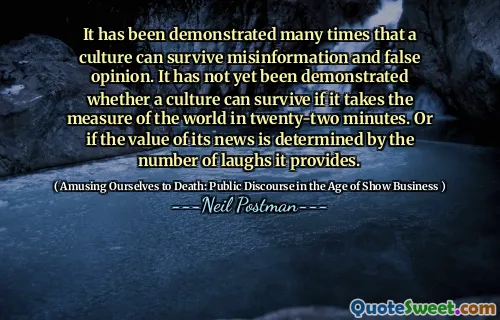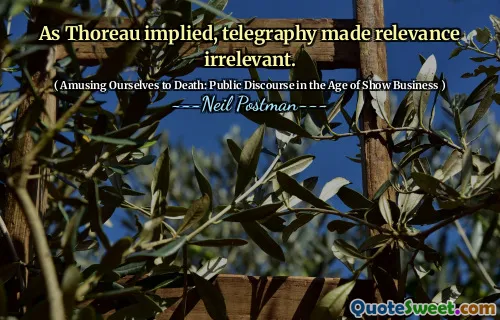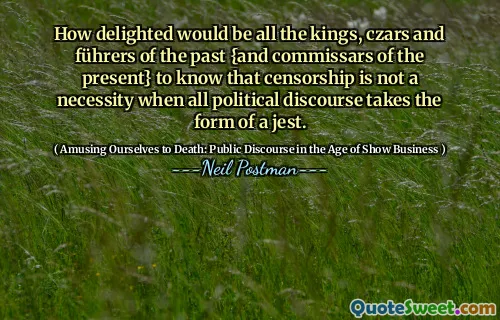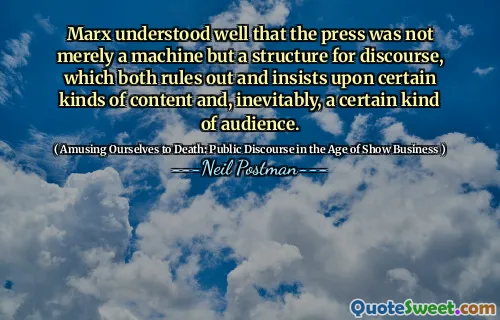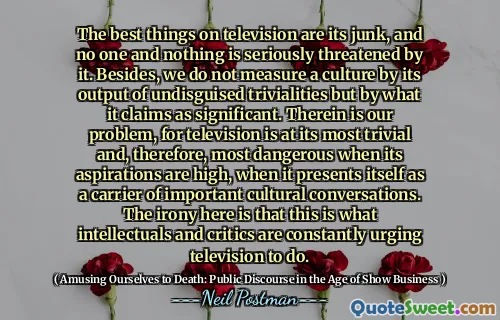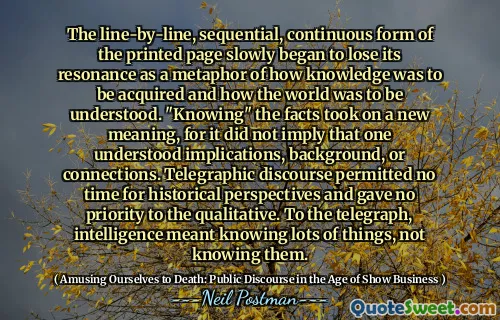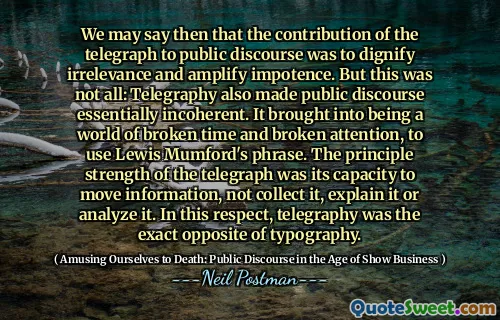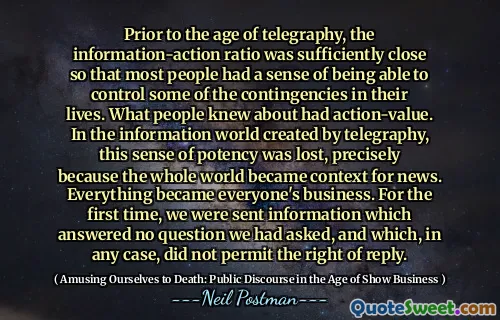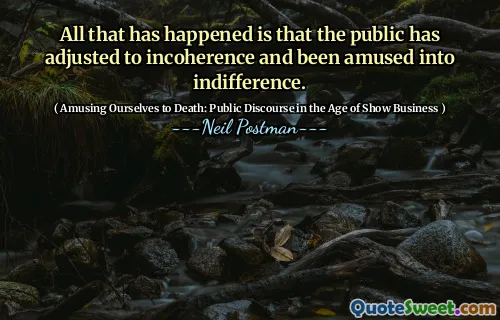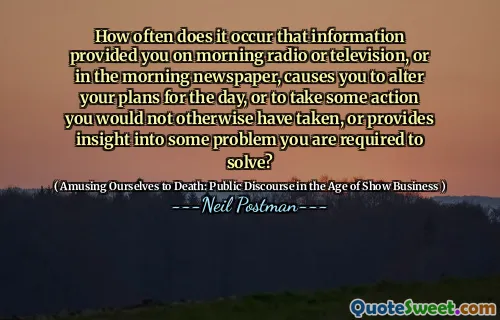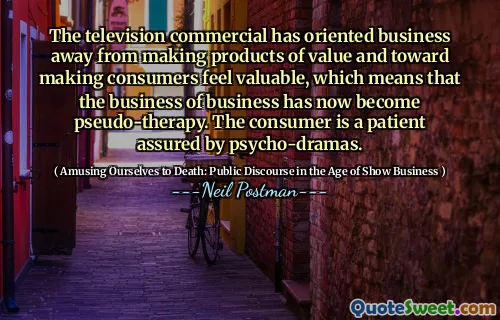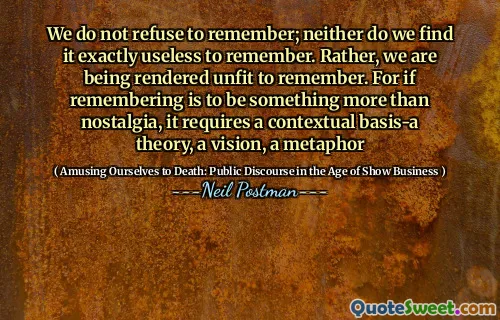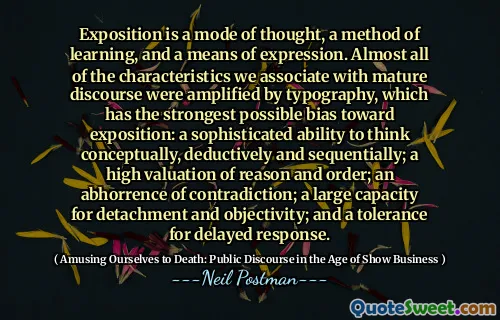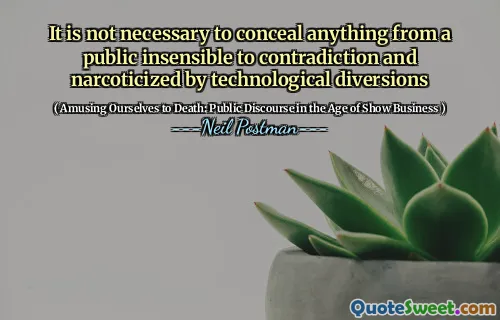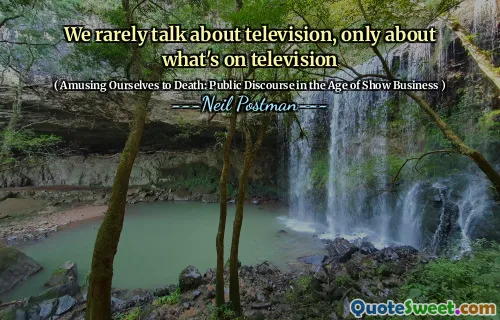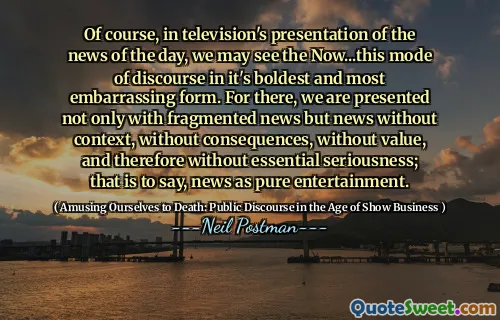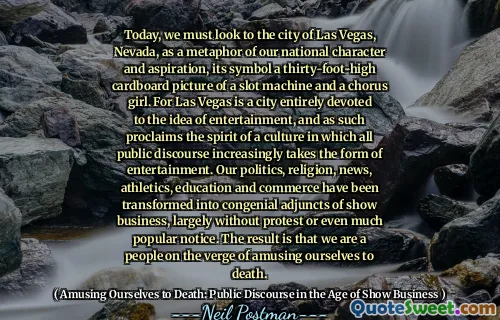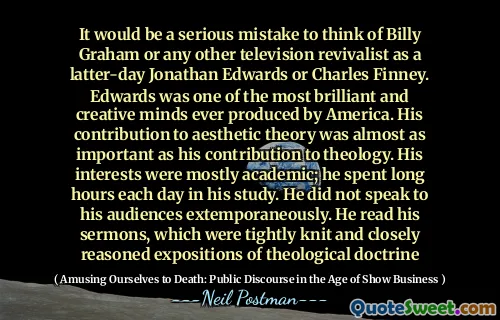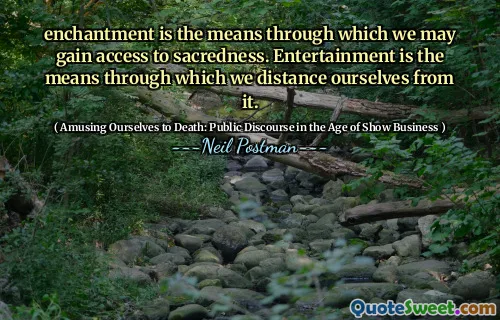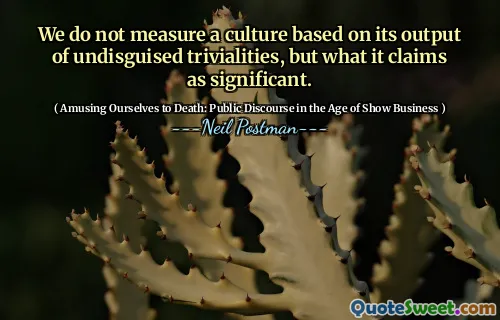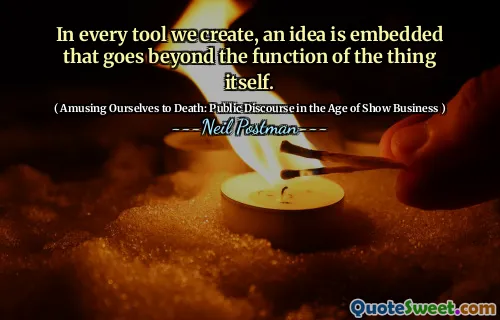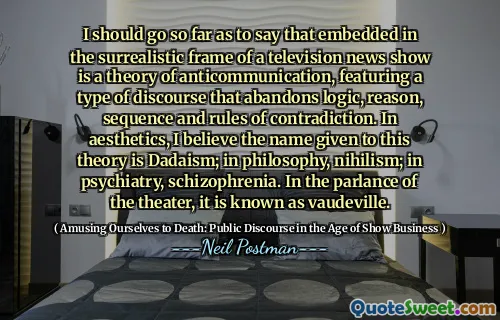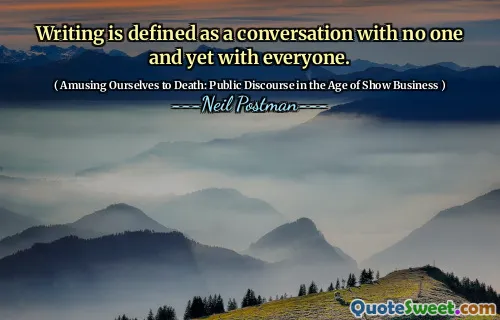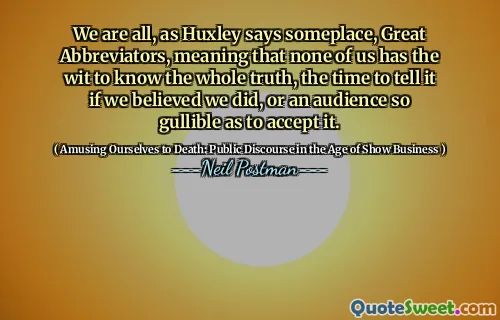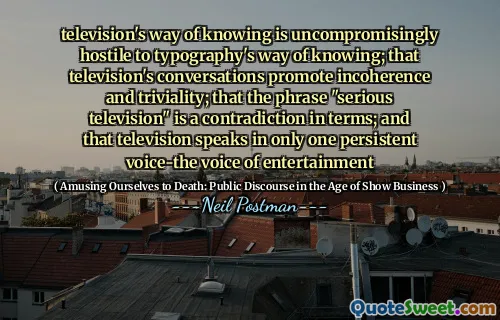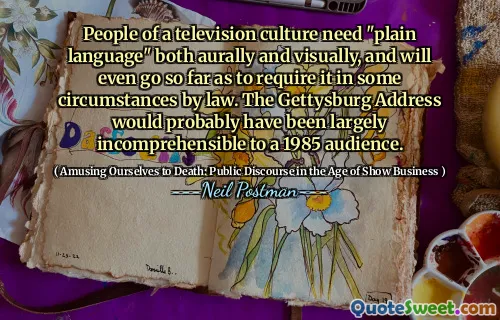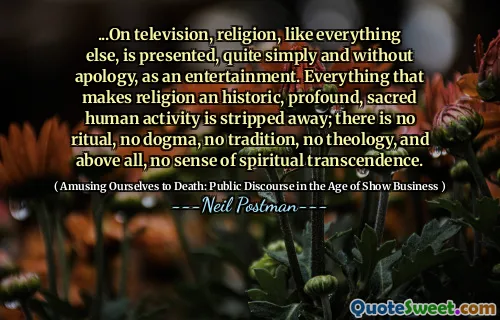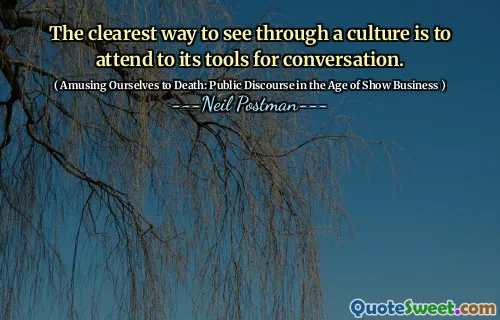"Amusing Ourselves to Death: Public Discourse in the Age of Show Business" by Neil Postman examines how television has transformed public discourse and communication. Postman argues that the medium of television prioritizes entertainment over meaningful dialogue, leading to a society that values spectacle more than substance. This shift affects how individuals engage with important cultural and political issues.
The book contrasts the print-based culture of the past, which encouraged critical thinking and rational discourse, with the superficial nature of television. Postman believes that because televised presentations favor emotional appeal and visual stimuli, the depth of public conversation has diminished significantly. As a result, society may become more passive, absorbing information without critical engagement.
Ultimately, Postman warns that prioritizing entertainment in public life risks replacing serious discourse with triviality. He calls for a reconsideration of how media influences thought and communication, urging individuals to be aware of the implications of living in a highly mediated society. The book serves as a cautionary tale about the dangers of allowing entertainment to eclipse the pursuit of knowledge and understanding.
More »
Today Birthdays
1955 -
Max Lucado
1946 -
John Piper
1842 -
William James
1907 -
Abraham Joshua Heschel
1887 -
Aldo Leopold
1755 -
Alexander Hamilton
1976 -
Alethea Kontis
1971 -
Mary J. Blige
1825 -
Bayard Taylor
1943 -
Jim Hightower
1885 -
Alice Paul
1923 -
Carroll Shelby
1928 -
David L. Wolper
1954 -
Kailash Satyarthi
1972 -
Amanda Peet
1946 -
Naomi Judd
1970 -
Malcolm D. Lee
1955 -
Christian Marclay
1973 -
Rahul Dravid
1987 -
Jamie Vardy
1942 -
Clarence Clemons
1992 -
Fatima Sana Shaikh
1948 -
Larry Harvey
1930 -
Rod Taylor
